The 25 Best MBA in Economics Management Programs

An MBA in Economics Management is a great way to gain a deeper understanding of the global economy and its implications on business. It provides students with the knowledge and skills necessary to succeed in today’s competitive job market. With an MBA in Economics Management, you will learn how to analyze economic data, develop strategies for success, and make informed decisions that can help your organization achieve its goals. By enrolling in one of the best MBA in Economics Management programs, you can gain the knowledge and skills necessary to pursue a successful career in economics or business management.
Develop your MBA Stack in Economics Management
An MBA in Economics Management can be a great way to build up your talent stack and open up a wide range of career opportunities. Earning an MBA in Economics Management requires a strong foundation in business fundamentals, including courses in accounting, finance, marketing, and management. Students also explore specialized courses in micro and macroeconomics, econometrics, and economic policy analysis. Many MBA in Economics Management programs also offer experiential learning opportunities such as case studies, internships, and consulting projects. These provide students with real-world experience that enhances their understanding of economic concepts.
Graduates with an MBA will have built up their economics stack to well-equip them for successful careers in business and economics, offering graduates a wide range of opportunities to apply their knowledge and skills in various industries.
What follows is a list of 25 top MBA programs that offer specializations in economics. Each of these 25 schools is accredited and is found across the country. These MBA programs offer various formats and delivery options to provide the most tailored and flexible experience for its students.
Methodology
To develop your talent stack, consider these best MBA in Economics Management programs for 2023. We looked for the best MBA brands at the most prestigious schools that offered a focused curriculum in economics.
For the ranking order, we used data from four major ranking systems: Quacquarelli Symonds, U.S. News and World Report, the Wall Street Journal, and Forbes. The ranking scores were averaged and adjusted to a 100-point scale. This data gave each MBA in Economics Management a Stacked Score.
The Best MBA in Economics Management Degree Programs
An MBA in Economics Management degree combines the in-depth understanding of economic principles with practical business skills. This degree prepares students for leadership roles in industries such as finance, consulting, and government, where strong economic analysis and strategic decision-making are crucial. Check out these amazing schools today!
1 University of Pennsylvania – Philadelphia, Pennsylvania

At the University of Pennsylvania, AACSB-accredited Wharton School offers Business Economics and Public Policy (BEPP) as one of the STEM-certified majors available for the Wharton MBA program. Students must take four credits worth of BEPP classes. Some examples of recent courses in the BEPP program include:
- Urban Public Policy and Private Economic Development,
- Business Insurance and Estate Planning,
- Markets for Pure Risk, and
- Energy Markets & Policy.
For those who are interested, students may also add a second major as well, choosing from the 18 other majors offered.
The Wharton MBA program is a 20-month program in addition to a three-and-a-half-month recommended summer internship. Courses are held on weekdays on UPenn’s campus in Philadelphia, which the MSCHE accredits. BEPP MBA students may choose to participate in a study abroad experience, a Global Module Course, or a Global Immersion Program.
Stacked Score: 97.54
2 University of Chicago – Chicago, Illinois

The Booth School of Business at the University of Chicago offers a concentration in Econometrics and Statistics as part of its Evening, Full-Time, and Weekend MBA programs. In fact, most MBA students choose to earn three or four concentrations. The Econometrics and Statistics concentration is made up of three courses, with options such as:
- Applied Regression Analysis,
- Big Data,
- Business Statistics, and
- Financial Econometrics.
For those in the Full-Time MBA program, it is a 21-month program with students taking three to four courses each semester at Harper Center / Hyde Park campus in Chicago. As part of the Full-Time MBA, students participate in a professional internship experience.
The Evening and Weekend MBA programs are both part-time programs. Both of these programs take two and a half to three years to complete. Both offer students the opportunity to continue working while enrolled in either MBA program. Classes for both the Weekend and Evening MBA programs are held at the Gleacher Center / Downtown Chicago campus.
Booth is accredited by AACSB, and the HLC accredits the University of Chicago.
Stacked Score: 97.37
3 Northwestern University – Evanston, Illinois
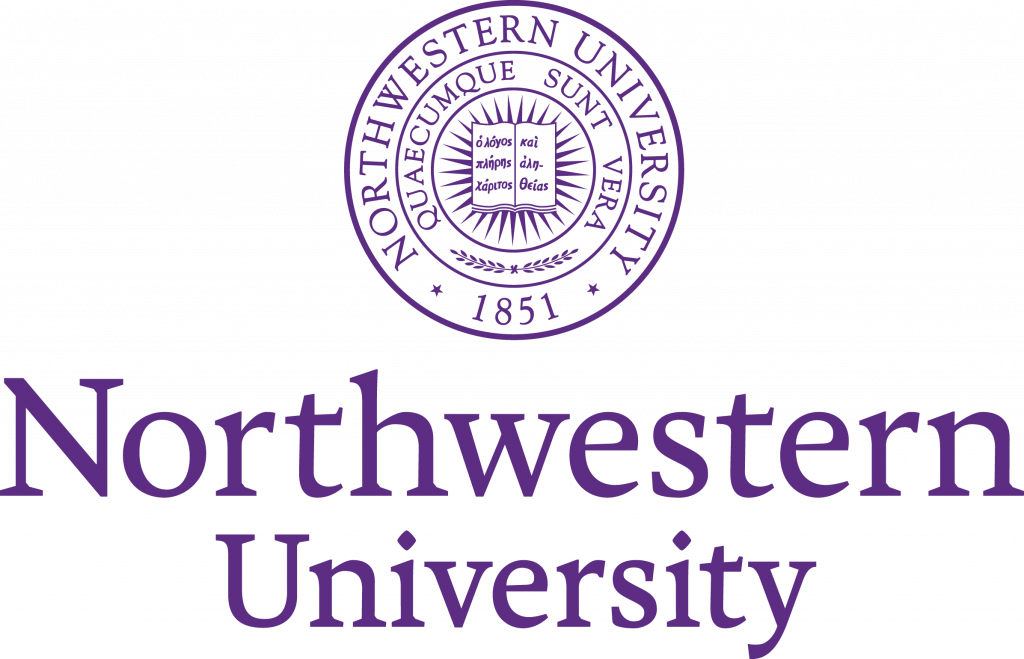
The AACSB-accredited Kellogg School of Management at Northwestern University offers economics as one of seven majors available to students in its Full-TIme MBA program. Students in the economics major take:
- Three foundational courses, such as Game Theory and Strategic Decisions.
- Courses on the matter of the economics of firms, such as Competitive Strategy and Industrial Structure.
- Courses like Public Economics for Business Leaders: State and Local Policy on the topic of economic policy.
- An Analytical Consulting Lab.
- Options of Independent or Field Study.
There are two tracks for Kellogg’s MBA program. The One-Year program is the faster of the two and is available to those who have previously completed required courses as either undergraduate or graduate students. Meanwhile, the Two-Year program offers a more immersive experience with greater space for customization.
The HLC accredits Northwestern.
Stacked Score: 95.29
4 Carnegie Mellon University – Pittsburgh, Pennsylvania

A concentration in economics is available for MBA students at Carnegie Mellon University who are enrolled in any of the four Tepper School of Business MBA programs. MBA options include the Full-Time MBA, Part-Time Online MBA, Part-Time Accelerated MBA, and Part-Time Flex MBA.
Students in the economics concentration take classes covering topics such as:
- Global economics,
- Incentives,
- Macroeconomics,
- Market design,
- Microeconomics,
- Monetary policy, and
- Risk management.
The economics concentration is not available in an online format. However, online students can still choose to pursue this concentration if they are able to attend classes on campus in Pittsburgh.
The Full-Time MBA is a 21-month program on Carnegie Mellon’s campus with daytime classes Monday through Thursday. The Part-Time Online Hybrid and the Part-Time Flex programs are both 32 months long. The Part-Time Online Hybrid offers online classes, while the Part-Time Flex offers online classes as well as daytime and evening on-campus classes. The Part-Time Accelerated is for those students who have undergraduate business experience. This is a 24-month program with online classes. With the exception of the Full-Time MBA program, the other three programs require students to attend several immersive weekends throughout the duration of their programs.
The AACSB accredits Tepper, and Carnegie Mellon holds accreditation from the MSCHE.
Stacked Score: 91.41
5 New York University – New York, New York
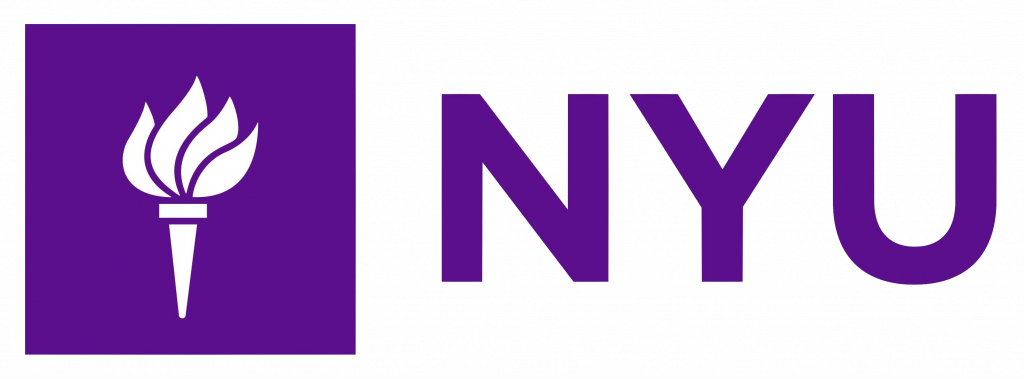
The AACSB-accredited Leonard N. Stern School of Business at New York University offers a wide array of MBA programs. Of these programs, students in the Full-Time MBA or any of the Par-Time MBA options can choose to specialize in economics.
Classes for the economic specialization for students in the Full-Time MBA program include classes like the following examples:
- Economic and Business History of the United States.
- Economics of Healthcare.
- Energy and the Environment.
- Growth in the Developing World and the Global Economy.
- International Macroeconomic Policy.
- The Economy and Financial Markets.
The Part-Time economics specialization is made up of the following five courses:
- Behavioral and Experimental Finance.
- Climate Economics.
- Climate Finance: An Economic and Financial Approach to Climate Change.
- Cost-Benefit Analysis.
- Game Theory.
The economics specialization is not available for Part-Time MBA students who opt for the Saturday-only classes.
The Full-Time MBA is a two-year program with classes on NYU’s campus. The Part-Time MBA program is for working professionals and can be completed in two to six years, depending on the pace each student needs. There are four delivery options for ultimate flexibility. Options include an Accelerated Two-Year, Saturday, Online/Modular, and Weeknights.
The MSCHE accredits New York University.
Stacked Score: 91.12
6 University of Washington – Seattle, Washington
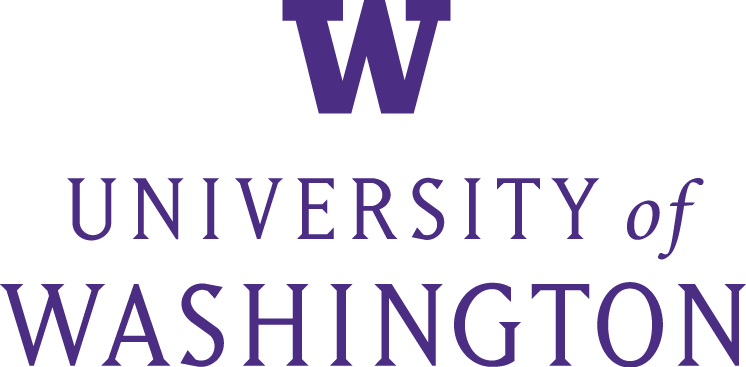
At the University of Washington, MBA students in the AACSB-accredited Michael G. Foster School of Business may earn a certificate in International Development Policy and Management to enhance their MBA program. This certificate program digs into topics of international economics, management, and policy. In addition to two electives, students take:
- Development Management and Governance,
- Economics of International Development, and
- International Development Certificate Portfolio.
The certificate will appear on students’ transcripts.
Students enrolled in any of the University of Washington’s six MBA programs can choose to add the certificate in International Development Policy and Management to their studies. The Full-Time MBA at the University of Washington is a two-year program at the UW’s Seattle campus. In addition to coursework, students also participate in internships, international experiences, applied strategy projects, and other experiential learning during their studies.
UW also offers a Global Executive MBA program and four work-compatible MBA programs:
- Evening MBA.
- Executive MBA.
- Hybrid MBA.
- Technology Management MBA.
The University of Washington is accredited by the NWCCU.
Stacked Score: 87.22
7 Pennsylvania State University – University Park, Pennsylvania

The Smeal College of Business at Penn State offers a concentration in Community and Economic Development as part of its Online MBA program. This is a nine-credit concentration. Students must choose three courses from the following offerings:
- Community and Economic Development: Theory and Practice.
- Entrepreneurship in the Community.
- Launching Community Ventures, Nonprofits, and Organizations.
- Methods and Techniques for Community and Economic Development.
- Population, Land Use, and Municipal Finance.
- Principles and Practice of Planning.
- Resilient Communities and Environments.
- Theories, Principles, and Institutions of International Development.
The Online MBA program at Penn State is asynchronous, although optional synchronous discussions are made available to students who wish to participate in them. Students take 39 core courses in addition to the nine needed for the Community and Economic Development concentration for a total of 48 credits. For those students who begin the program in the fall or spring semesters, there is no on-campus residency requirement. Instead, students participate in a 100 percent online, three-day residency. For those who choose to begin the program in the summer, there is an on-campus residency on Penn State’s University Place campus.
The AACSB accredits the Smeal College of Business. Pennsylvania State University is accredited by the MSCHE.
Stacked Score: 68.27
8 Marquette University – Milwaukee, Wisconsin
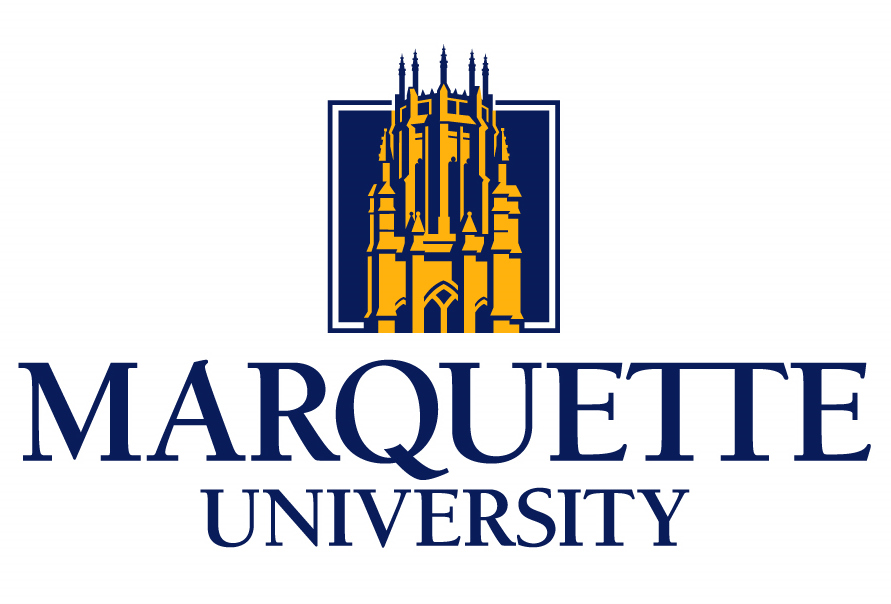
At Marquette University, MBA students may choose to specialize in economics. Students take Economics for Management Decision Making and Applied Economics in addition to economic elective credits, for a total of 12 credits for the specialization.
Offered by Marquette’s AACSB-accredited Graduate School of Management, the MBA program offers an array of options intended to give students the flexibility they need. Students may choose to take classes online in both asynchronous and synchronous formats at Marquette’s Milwaukee, Wisconsin campus or a hybrid of both options. Students may also decide their course load from semester to semester and can move from part-time to full-time and back as necessary. In total, students take between 31.5 and 42 credits to earn their MBA degree, and most students graduate, on average, within two years.
Marquette is accredited by the HLC.
Stacked Score: 54.86
9 Saint Louis University – Saint Louis, Missouri
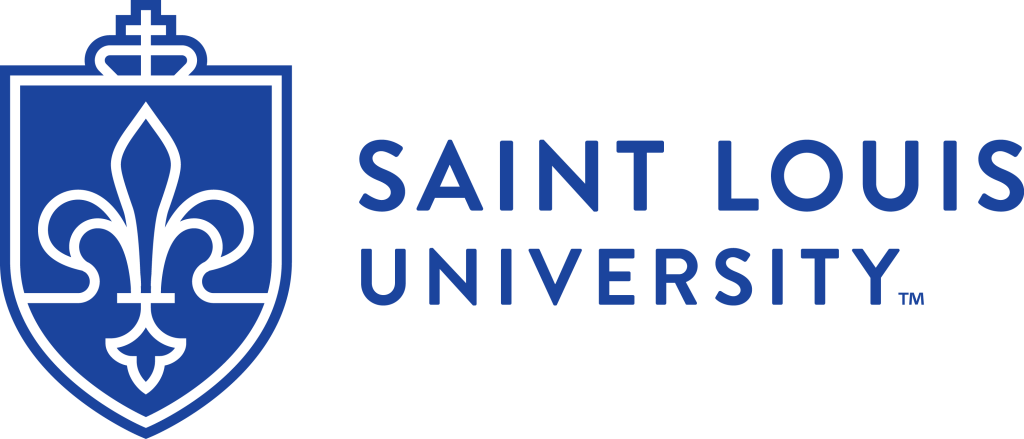
Students interested in building their economic stack at Saint Louis University may choose to pursue a nine-credit economics concentration as part of their Professional MBA program. This is a highly flexible concentration. Students may choose any nine credits of graduate economic coursework (except for Economics for Managers) to fulfill the concentration.
Offered through the AACSB-accredited Richard A. Chaifetz School of Business, Saint Louis University’s PMBA program is 36 to 48 credits. Classes are mostly offered on its Saint Louis campus on Monday through Thursday evenings. However, there are many classes that are also offered online to provide further flexibility to the working professionals this program is designed for. Most students earn their MBA degrees in two and a half years, although they do have five years to complete the program as needed.
Saint Louis University is accredited by the HLC.
Stacked Score: 54.84
10 Drexel University – Philadelphia, Pennsylvania

Drexel’s Bennett S. LeBow College of Business offers a STEM-designated concentration in economics as part of its MBA program. In this specialization, students will cover the following:
- Causal Inference,
- Corporate Strategy,
- Data Analysis,
- Financial Analysis,
- Forecasting and Prediction,
- Market Analysis, and
- Pricing Strategies.
This concentration is available to all Drexel MBA students except for those enrolled in the Online MBA program.
Drexel offers two in-person MBA programs at its Philadelphia campus. The Full-Time MBA can be completed in just 12, 15, or 18 months. The 12-month track is for those with business-related experience. The 15-month track allows students to complete a summer internship. And the 18-month track also has the summer internship and a focus on career and professional development, being the most immersive of the three tracks. The Part-Time MBA program, meanwhile, is a 24- to 36-month program. In addition to on-campus classes in Philadelphia, there is the option for a hybrid format with classes one night per week at Drexel’s Malvern campus or entirely online. However, the economics concentration must be done in person.
LeBow College of Business is AACSB accredited. Drexel University holds accreditation from the MSCHE.
Stacked Score: 54.71
11 University of Houston – Houston, Texas

At the University of Houston, MBA students in the AACSB-accredited Bauer College of Business can earn an Economics of the Energy Value Chain certificate. This certificate requires students to complete the following courses:
- Electric Power Markets.
- Energy Transition.
- Energy Value Chain.
- Future of Energy.
- Midstream Energy Finance.
- Petrochemical and Refining Economics.
- Upstream Economics.
The Economics of the Energy Value Chain certificate is available for students enrolled in the University of Houston’s Full-Time MBA and Professional MBA programs. The Full-Time MBA program is a two-year program. The first year requires students to attend courses at the Houston campus during the day. However, in the second year, courses are held in the evenings to allow students the flexibility to begin or return to work. The Professional MBA program offers classes online, evening classes, or a hybrid of the two.
The University of Houston is regionally accredited by the SACSCOC.
Stacked Score: 42.03
12 DePaul University – Chicago, Illinois
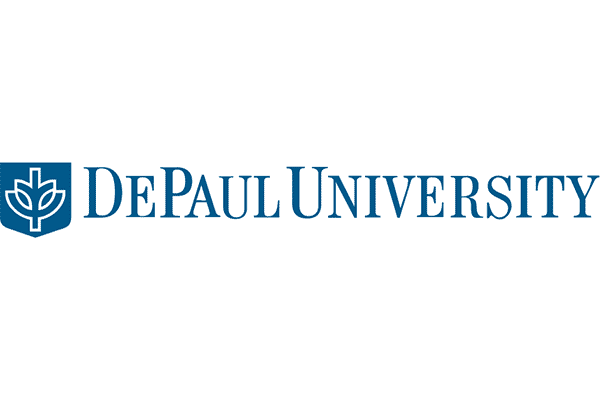
MBA students at DePaul University may choose to pursue a concentration in applied economics. The courses available in this concentration are made up of several special topic seminars, including the following
- Behavioral Economics and Decision Making.
- Competition, Strategy, and Antitrust Policy.
- Economics of the Public Sector.
- Health Economics.
- International Trade Theory and Policy.
- Labor Economics and Labor Relations.
- Strategic Decision Making and Game Theory.
- Strategies and Processes of Negotiation.
- The Public Policy, Business, and Ethical Environment of the Government.
Run through the Driehaus College of Business and the Kellstadt Graduate School of Business, the DePaul MBA in Applied Economics is a 16-course program with 11 core courses and five electives. Students can pursue the applied economics concentration in any of DePaul’s three MBA programs.
The Full-Time Day MBA is aimed at early professionals and those changing careers with courses on DePaul’s Chicago campus Mondays through Thursdays. This program is 15 months long. The Evening MBA is for those students who have at least two years of professional work experience. Courses are held on the Loop campus in the evenings or online, and students can complete the program in 21 months. Finally, the Online/Weekend MBA program is also for those with two or more years of professional experience. Students take courses synchronously two Saturdays a month, and the program lasts for two years.
Driehaus College of Business is AACSB-accredited. DePaul is accredited by the HLC.
Stacked Score: 42.83
13 University of Cincinnati – Cincinnati, Ohio
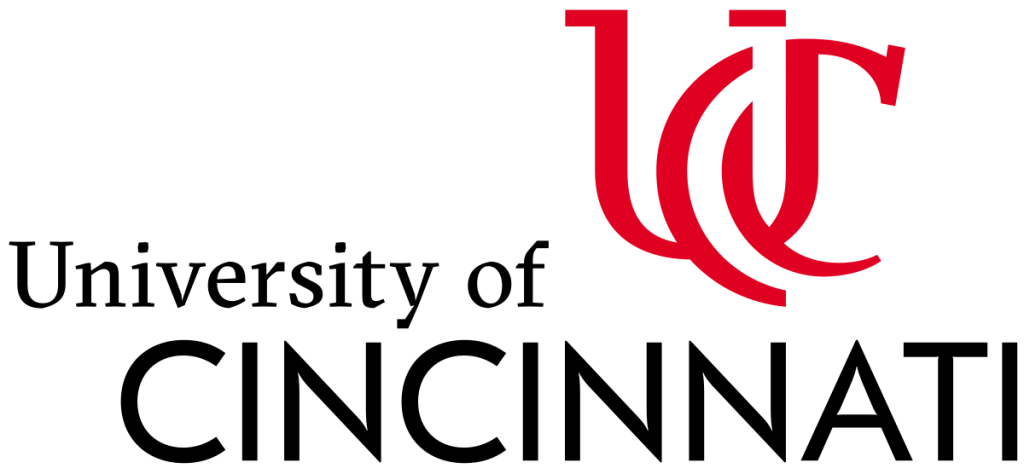
The University of Cincinnati offers public economics as a certificate available to its MBA students. This certificate requires the following three courses:
- Economics Data Analysis,
- Game Theory, and
- Program Evaluation.
As well as three of the following electives:
- Competition & Regulation,
- Environmental Economics (may be taken at the Norwegian School of Economics in Bergen, Norway),
- Health Economics,
- Topics in Macroeconomics, and
- Urban & Regional Economics.
The MBA program at the University of Cincinnati is run by the AACSB-accredited Carl H. Lindner College of Business. It can be pursued as a full-time, part-time, or online program. Either way, the program requires 10 credits of foundation classes, 26 credits of core classes, and 12 credits of electives. The electives can be fulfilled by completing the Certificate in Public Economics. A study abroad experience is required for students enrolled full-time.
The University of Cincinnati is accredited by the HLC.
Stacked Score: 41.63
14 Oklahoma State University – Stillwater, Oklahoma
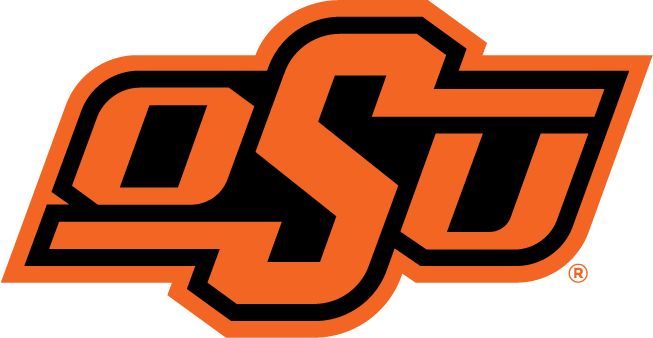
Oklahoma State University MBA students can pursue a concentration in economics at the Stillwater campus. This is a 12-credit concentration that is run by the Spears College of Business’ Watson Graduate School of Management. Students may choose from the following course selection to fulfill those requirements:
- Business and Economic Forecasting.
- Econometrics.
- Energy Economics.
- Macroeconomic Analysis.
- Mathematical Economics.
- Microeconomic Theory.
Students enrolled in OSU’s MBA as full-time students must complete 36 credits. Meanwhile, for those students with professional working experience and those who are distance learners, the part-time MBA program is a 33-credit program. Part-time students can take classes on the Tulsa, Stillwater, or online campuses, but the economics concentration is only available at OSU’s main campus in Stillwater.
The AACSB accredits the Spears College of Business. Oklahoma State University is accredited by the HLC.
Stacked Score: 36.89
15 Manhattan College – Riverdale, New York

The O’Malley School of Business at Manhattan College offers a concentration in finance and economics for its MBA students enrolled in either the MBA or the Online MBA programs. The concentration is made up of the following four courses plus an internship or a research project:
- Corporate Finance.
- Environmental Economics and Policy.
- Markets, States, and Policies in the Global Economics.
- Stock Market and Corporate Valuation.
The MBA at Manhattan College is a 36-credit program. Students may enroll as either full-time or part-time students. Full-time students take four courses per semester at Manhattan College’s Riverdale, New York, campus. This is an 18-month program. Part-time students take two courses at the Riverdale campus and can graduate in two years. Online MBA students can also complete the program in just 18 months.
The O’Malley School of Business holds AACSB accreditation. Manhattan College is accredited by the MSCHE.
Stacked Score: 29.89
16 University of St. Thomas – Houston, Texas

The University of St. Thomas in Houston, Texas offers a concentration in economics for its MBA students in the Cameron School of Business. In this concentration, students will examine:
- Ethics in commerce,
- Financial markets,
- International economics,
- Macroeconomics, and
- Microeconomics.
Students in this concentration gain advanced knowledge of economic analysis and trends forecasting. As part of the concentration, students complete an internship, an independent study, or attend special topic seminars.
There are two MBA program options at St. Thomas. Full-time MBA students can earn their MBA degrees in a year. For those students who continue working while in the program, it is possible to complete the program in two years. Either way, both tracks are available for students to attend classes either on campus in Houston or online.
The Cameron School of Business is accredited by the AACSB. The University of St.Thomas holds accreditation from the SACSCOC.
Stacked Score: 26.13
17 University of North Florida – Jacksonville, Florida
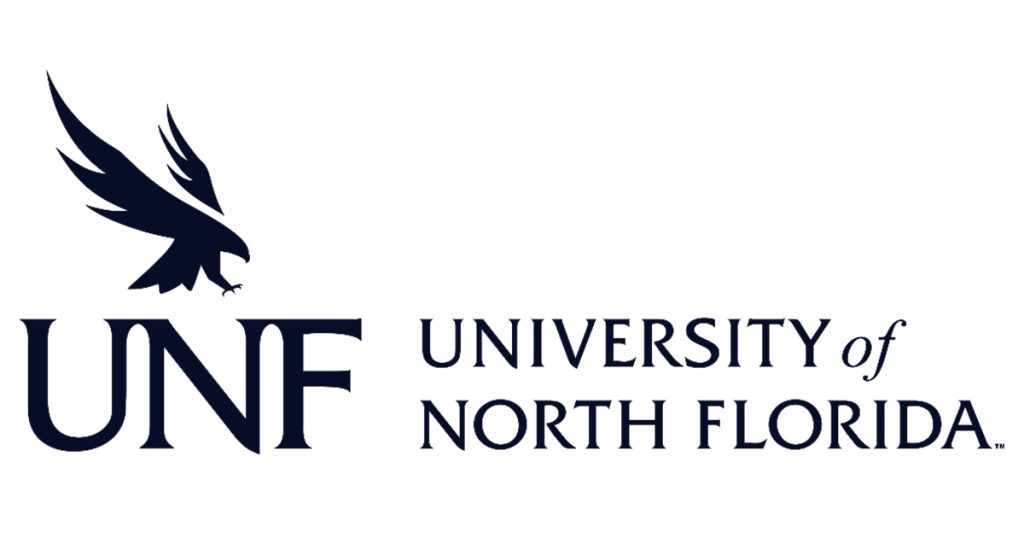
At the Coggin College of Business, University of North Florida MBA students may choose to pursue a concentration in economics as part of their studies. The economics concentration is nine credits, which can be fulfilled through three courses.
The MBA program at the University of North Florida requires students to take 27 core course credits. For those who do not have the required foundation courses, an additional 15 credits are also needed to complete the program. In total, this adds up to 12 courses in addition to the three concentration courses. Students may choose to enroll as either full-time or part-time students. Depending on enrollment, students can earn their MBA degrees in 12 to 24 months at the pace that works best for them. Classes are held at the University of North Florida’s Jacksonville campus.
The Coggin College of Business holds accreditation from the AACSB, while the SACSCOC accredits the University of North Florida.
Stacked Score: 24.38
18 Mount St. Mary’s University – Emmitsburg, Maryland

MBA students at Mount St. Mary’s University may pursue a concentration in economics as part of their MBA program at the Richard J. Bolte, Sr. School of Business. Students can earn an economics concentration by taking two elective classes in economics.
The Mount’s MBA program is available as an in-person program at the school’s Emmitsburg or Frederick, Maryland campuses. It’s also available online and in a hybrid format, offering students a high degree of flexibility. In-person classes are offered one night per week in the evenings. Online classes can be done asynchronously or synchronously, and the whole program can be completed entirely online.
Students can take one to two classes per session, or they may choose to take a session off as needed. In total, this program requires 12 classes to complete (for 36 credits), and most students earn their MBA degree in one to two years.
The Richard J. Bolte, Sr. School of Business is accredited by the IACBE. Mount St. Mary’s holds accreditation from the MSCHE.
Stacked Score: 21.57
19 Georgia State University – Atlanta, Georgia
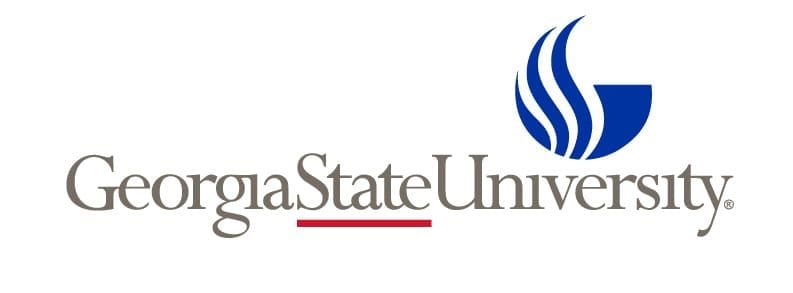
The Georgia State University MBA program offers business economics as a concentration option. Students in the business economics concentration choose 12 credits from the following course selection:
- Applied Statistics and Econometrics.
- Applied Microeconomic Analysis.
- Economics of Global Finance.
- Financial Econometrics.
- Industrial Organization and Antitrust Economics.
- Macroeconomic Analysis.
- Theory of the Firm and Business Strategy.
In addition to a concentration in business economics, students can also customize their Flexible MBA with Career Pathways in a number of areas. Career pathways include analytics consulting, social management, fintech, and commercializing innovation. MBA students can also pursue graduate certificates in Artificial Intelligence, Business Innovation, Disruptive Innovation and Entrepreneurship, and Fintech Innovation.
The Flexible MBA is run through the J. Mack Robinson College of Business and has two different formats. The full-time format is a 24-month program. Meanwhile, the part-time program is, on average, 36 months, though students have up to five years to finish the program. Classes are once a week, Monday through Thursday, in the evenings on GSU’s Atlanta campus, Buckhead Center, or online.
The J. Mack Robinson College of Business is accredited by the AACSB, and the SACSCOC accredits Georgia State University.
Stacked Score: 19.60
20 Bethel University – Saint Paul, Minnesota

At Bethel University, the College of Adult & Professional Studies offers a Data, Economics, and Development Policy as part of its MBA program. The concentration is a 12-credit series and requires the following three courses:
- Data Analysis for Social Scientists,
- Designing and Running Randomized Evaluations, and
- Microeconomics.
In addition to at least one elective course from the following options:
- Foundations of Development Policy: Advanced Development Economics,
- Good Economics for Hard Times,
- Political Economy and Economic Development, or
- The Challenges of Global Poverty.
The MBA at Bethel can be done in person on its St. Paul, Minnesota campus, online, or a hybrid of the two. This is a 42-credit program that students can complete in 24 to 30 months.
The College of Adult & Professional Studies is accredited by the ACBSP. Bethel University holds accreditation from the HLC.
Stacked Score: 15.85
21 University of Texas at Arlington – Arlington, Texas

The University of Texas at Arlington offers students the option to specialize in economics as part of its MBA Flex program, which is run through its AACSB-accredited College of Business. The MBA Flex program is a 36-credit program aimed at students both with and without prior business experience but who are currently working professionals who need a high degree of flexibility. Classes are available at the University of Texas Arlington campus, but there are also online classes and hybrid options for those who prefer or need a different format. Students can direct the pace of the program for what works for them, but the MBA Flex program can be completed in just 15 months.
The University of Texas at Arlington is accredited by the SACSCOC.
Stacked Score: 12.58
22 Appalachian State University – Boone, North Carolina

Students interested in building their economics stack in North Carolina might consider the MBA program at Appalachian State University, offered by the Walker College of Business. This is a 12-credit concentration, which students fulfill through the completion of the following four courses:
- Benefit-Cost Analysis,
- Environmental Economics and Policy,
- Forecasting and Time Series Models, and
- International MIcroeconomics.
The MBA at App State is available with classes in person at its Boone, North Carolina campus or fully online. For in-person students enrolled in a full-time capacity, the MBA program takes one year. For part-time students, this is a two-year program. The online format of the MBA program is only available for part-time students, and it is a blend of asynchronous and synchronous work. The App State MBA is a 36-credit program, with 24 credits from core coursework and the remainder from concentration courses. Students may also choose to participate in an MBA internship, business practicum, independent study, or a thesis.
The SACSCOC has accredited Appalachian State University.
Stacked Score: 12.51
23 University of Texas at El Paso – El Paso, Texas

The Professional MBA program at the University of Texas at El Paso offers economics as one of its concentration areas. This concentration requires students to complete nine credits of economics coursework.
Run through the Woody L. Hunt College of Business, the PMBA program at UT at El Paso is a 36-credit program. Students take one course at a time, with each course running for five and a half weeks. Classes are held in person at the UTEP Graduate Business Center in downtown El Paso. Classes are held on Tuesday evenings and Saturday mornings for students who begin the PMBA program in the fall. Classes are held on Monday and Thursday evenings for students who began the program in the spring. This is a full-time program that students can complete in 18 months.
The University of Texas at El Paso is accredited by the SACSCOC.
Stacked Score: 12.30
24 Sam Houston State University – Huntsville, Texas
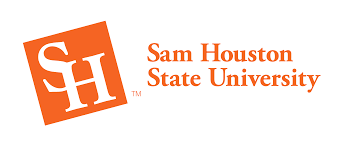
Sam Houston State University offers economics as a concentration as part of its MBA program, which its College of Business Administration runs. This is a nine-credit concentration, so students must choose three of the following class options:
- Applied Topics in Health Economics.
- Economic Analysis of Strategy.
- Economic Theory.
- Econometrics.
- Energy Economics.
- International Economics.
- Mathematical Methods for Applied Economics.
- Macroeconomics.
- Microeconomics.
- Seminar in Managerial Economics.
- Topics in Development Economics.
- Urban Economics.
The MBA at Sam Houston is a 36-credit program with 27 of those credits being core courses, and the remaining covered by the economics concentration. The program can be completed in just four semesters, though students may choose to enroll part-time if they are working while participating in the program. For part-time students, the program takes two years to complete. Classes may be done entirely online or at the Houston campus or Woodlands Center as in-person classes.
The AACSB has accredited the College of Business, while the SACSCOC accredits Sam Houston University.
Stacked Score: 12.27
25 University of Memphis – Memphis, Tennessee

At Fogelman College of Business and Economics, students can pursue a concentration in business economics as part of the University of Memphis Professionals MBA program. The PMBA is a 42-credit program for those students who choose to add a concentration, like the business economics concentration, to their program of study. Students in the business economics concentration must complete four of the following class options:
- Applied Macroeconomics.
- Econometrics.
- Forecasting.
- Game Theory.
- Personnel Economics.
- Quantitative Economic Analysis.
The PMBA is designed for working professionals. Classes are held in person in the evenings or online. Students may choose to enroll in both a full-time and part-time capacity.
The Fogelman College of Business and Economics holds accreditation from the AACSB. The University of Memphis is accredited by the SACSCOC.
Stacked Score: 11.73
Economics Stack

When it comes to building your economics stack, an MBA degree is just one route to take. If you aren’t quite ready for that step, there are other ways to start working on your stack, including our free economics management course.
Join an Association
Several professional associations for economists serve to advance the profession, provide networking opportunities, promote research and publications, and offer professional development resources. Some of the most prominent associations for economists include:
- American Economic Association (AEA): This is the largest professional organization for economists in the United States, with over 18,000 members worldwide. The AEA is dedicated to promoting economic research and fostering the exchange of ideas among economists.
- International Association for Feminist Economics (IAFFE): This association seeks to promote feminist economic research, analysis, and policy-making. Its members work towards advancing the status of women and improving the economic well-being of all people.
- National Association for Business Economics (NABE): This organization brings together professionals who work in business economics and related fields. Members include economists who work for corporations, consulting firms, and government agencies.
- Society for the Advancement of Behavioral Economics (SABE): This association is dedicated to promoting research in behavioral economics, a subfield that integrates insights from psychology and economics.
These professional associations provide opportunities for economists to connect with peers, engage in professional development activities, and stay up-to-date with the latest research and trends in the field. Membership in a professional association can also enhance an economist’s career prospects by providing access to job listings, conferences, and publications.
Behavioral Economics
Speaking of behavioral economics, this field studies the effects of psychological, social, cognitive, and emotional factors on the decision-making behavior of individuals and institutions.
Traditional economic theory assumes that individuals are rational and make decisions based on careful consideration of costs and benefits. However, behavioral economics recognizes that individuals often make decisions that are influenced by cognitive biases, heuristics, and social norms, leading them to make choices that may not be in their best interests.
Behavioral economics has many practical applications in areas such as public policy, marketing, and finance. For example, governments can use insights from behavioral economics to design policies that encourage healthy behavior or reduce energy consumption. Businesses can use these insights to better understand consumer behavior and develop marketing strategies that are more effective. Investors can use behavioral economics to make better investment decisions by recognizing and avoiding common biases and errors.
If you’re looking to build your behavioral economics stack in particular, pick up a copy of “Misbehaving: The Making of Behavioral Economics” by Richard Thaler or “Thinking, Fast and Slow” by Daniel Kahneman. Or consider a course like this one from edX.
Hone Your Soft Skills
Economists require a wide range of skills to excel in their field. Here are some of the key skills that are important for an economist:
- Analytical skills: Economists need strong analytical skills to be able to identify and analyze complex economic issues and data. They must be able to interpret data, conduct statistical analysis, and develop mathematical models to explain economic phenomena.
- Critical thinking: Economists must have excellent critical thinking skills to be able to evaluate economic policies and theories. They need to be able to weigh the pros and cons of different solutions and determine the best course of action.
- Communication skills: Economists must be able to effectively communicate their ideas and research findings to a wide range of audiences, including policymakers, academics, and the general public. They need to be able to write clearly and persuasively, as well as present their findings in a compelling way.
- Attention to detail: Economists need to have a keen eye for detail, as even small inaccuracies or errors in data analysis can have significant consequences for economic policy decisions.
- Problem-solving skills: Economists must be able to develop creative and innovative solutions to complex economic problems. They need to be able to identify the root causes of economic issues and propose effective strategies for addressing them.
- Mathematical skills: Economists must be proficient in mathematics, including statistics, calculus, and linear algebra, to be able to build and analyze economic models.
Overall, the skills required for an economist are diverse and multifaceted, requiring both strong technical and soft skills. The ability to work independently and as part of a team is also important, as economists often collaborate with other researchers and stakeholders to address economic issues. An MBA in Economics Management can help you develop your economics stack in these areas.
We hope you’ve found these top 25 MBA in Economics Management programs helpful as you choose the best MBA program for you to build your economics management stack.
Reasons to Earn Your MBA in Economics
- Develop strong analytical and critical thinking skills: Earning an MBA in Economics Management helps to develop critical thinking and analytical skills that are valuable for problem-solving and decision-making in the workplace. These skills are highly sought after by employers and can help to advance your career in various industries.
- Gain a deep understanding of economic principles and strategies: An MBA in Economics Management provides a thorough understanding of economic theories, principles, and strategies. This knowledge is applicable to various industries and sectors, making you a valuable asset to any organization.
- Advance into leadership roles: With an MBA in Economics Management, you will gain the necessary skills and knowledge to take on leadership roles within your organization. This degree prepares you to handle complex economic challenges and make strategic decisions, positioning you for career advancement.
- Specialize in a high-demand field: The demand for professionals with a combination of business and economics knowledge is growing in various industries, making an MBA in Economics Management a highly for marketable degree. This specialization can give you a competitive edge in the job market and open up opportunities for higher-paying roles.
- Networking opportunities: During your MBA program, you will have the opportunity to network with other professionals, including your classmates, professors, and industry experts. These connections can be valuable for your career advancement, as they can provide mentorship, job leads, and references.
- Expand career options: An MBA in Economics Management equips you with versatile skills and knowledge that can be applied in various roles and industries. This degree can open up opportunities in fields such as finance, consulting, market research, and government agencies, giving you the flexibility to pursue different career paths.
- Higher earning potential: According to the Graduate Management Admission Council (GMAC), the median starting salary for MBA graduates in the US is significantly higher than for those with just a bachelor’s degree. By earning an MBA in Economics Management, you can potentially increase your earning potential and achieve financial stability in your career.
- Keep up with the evolving job market: The job market is constantly evolving, and employers are looking for candidates with diverse skill sets and a strong understanding of economic principles. By earning an MBA in Economics Management, you can stay current with industry trends and developments, making you a valuable asset to your organization.
- Develop a global perspective: Many MBA in Economics Management programs offer international exposure, allowing students to gain a global perspective on economic issues and strategies. This experience can be beneficial for those looking to advance in a globalized job market, where understanding different economic systems and cultures is essential.
- Personal growth and self-improvement: Earning an MBA in Economics Management requires dedication and hard work, but the personal and professional growth that comes with it is invaluable. You will not only gain technical skills but also develop leadership, time management, and communication skills that can help you excel in your career.
Written by: Tammie Cagle